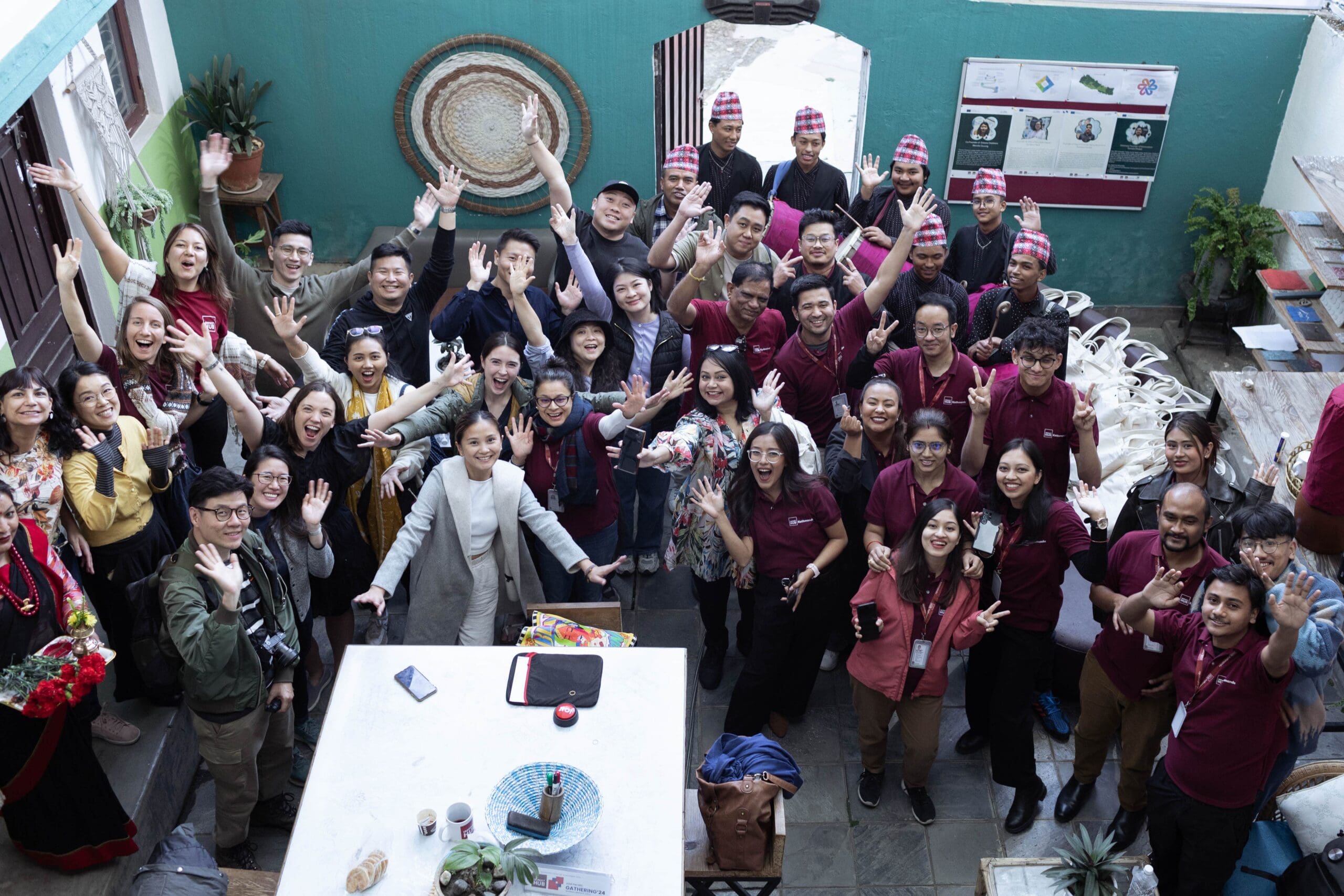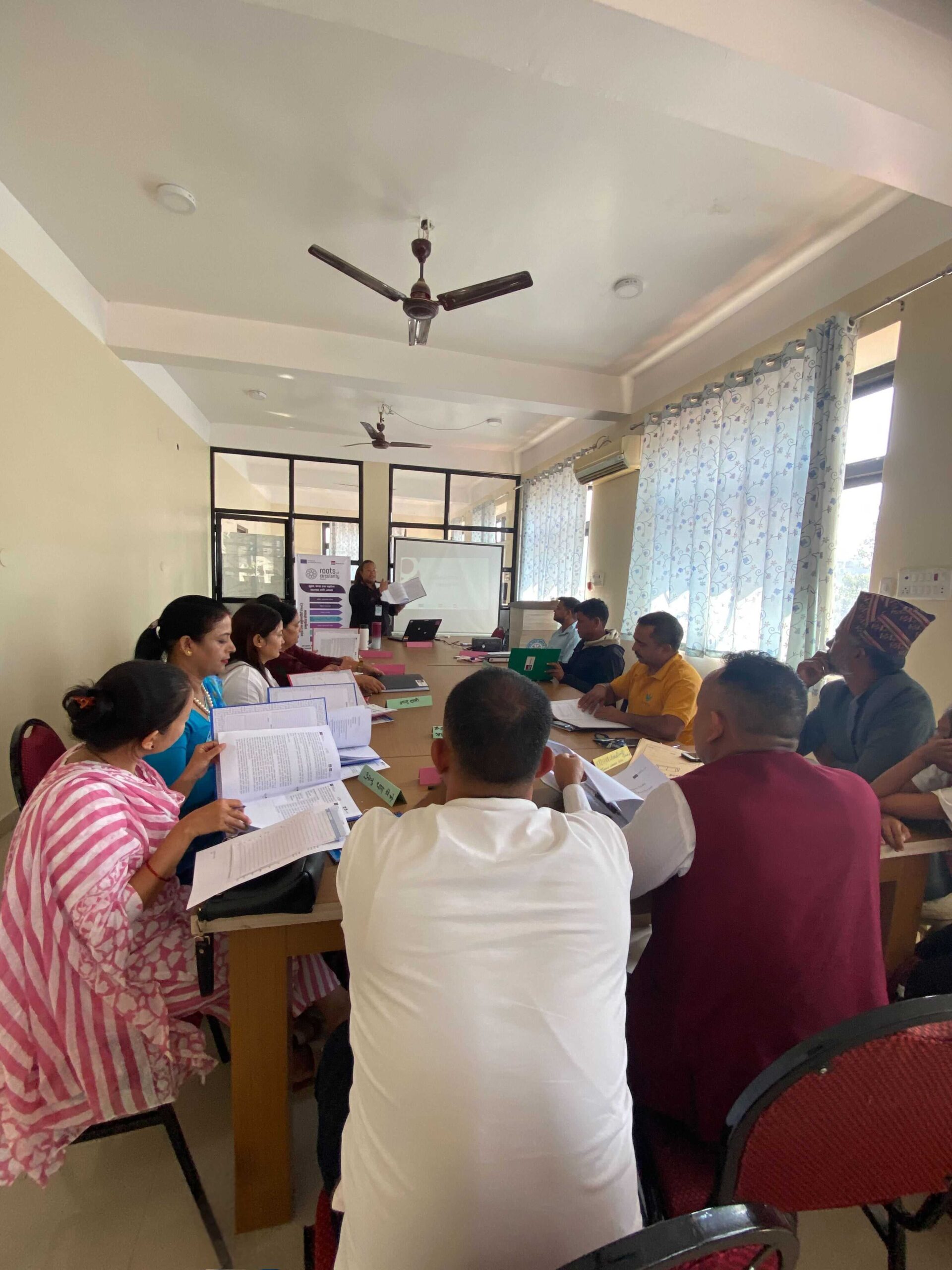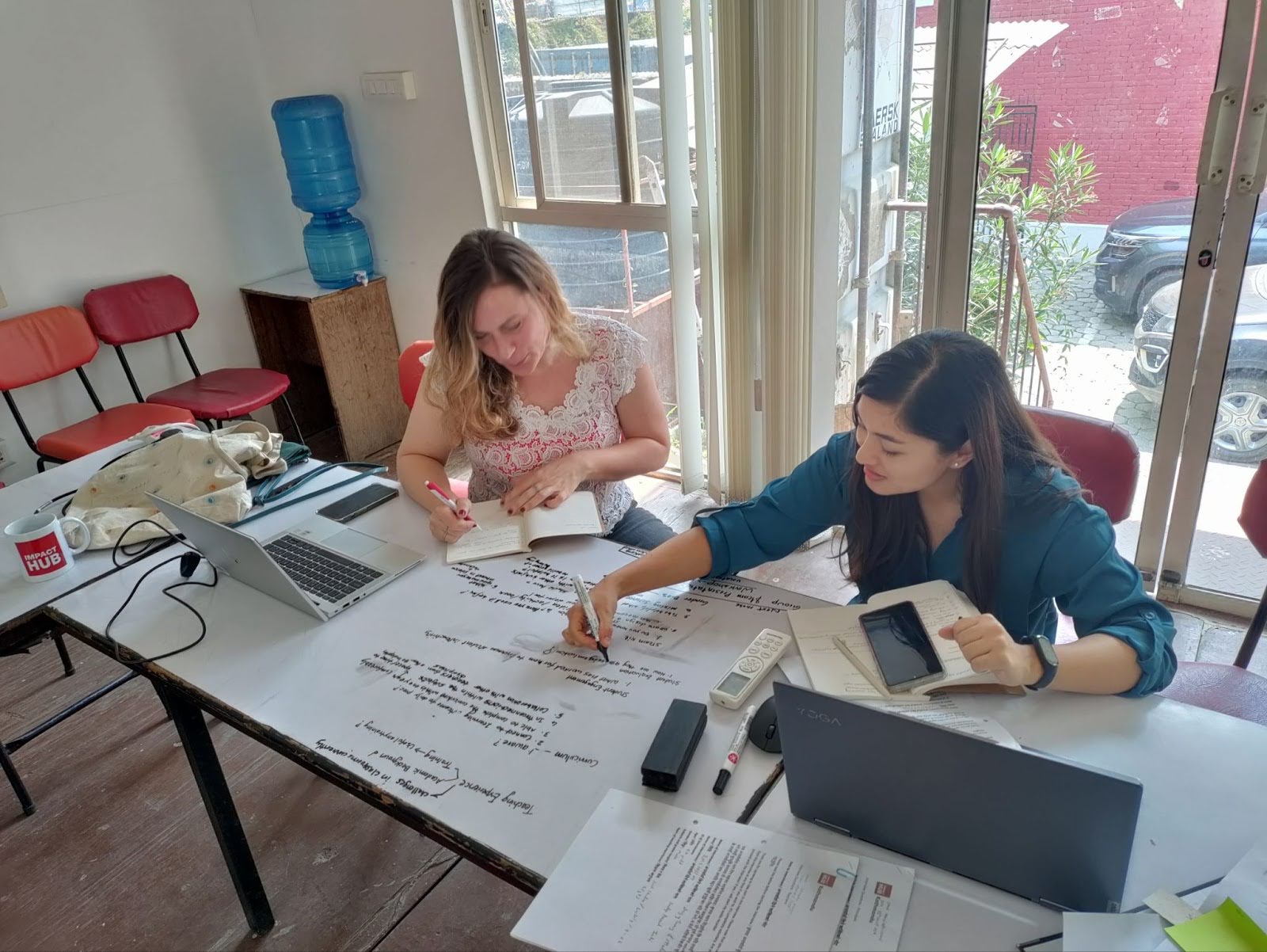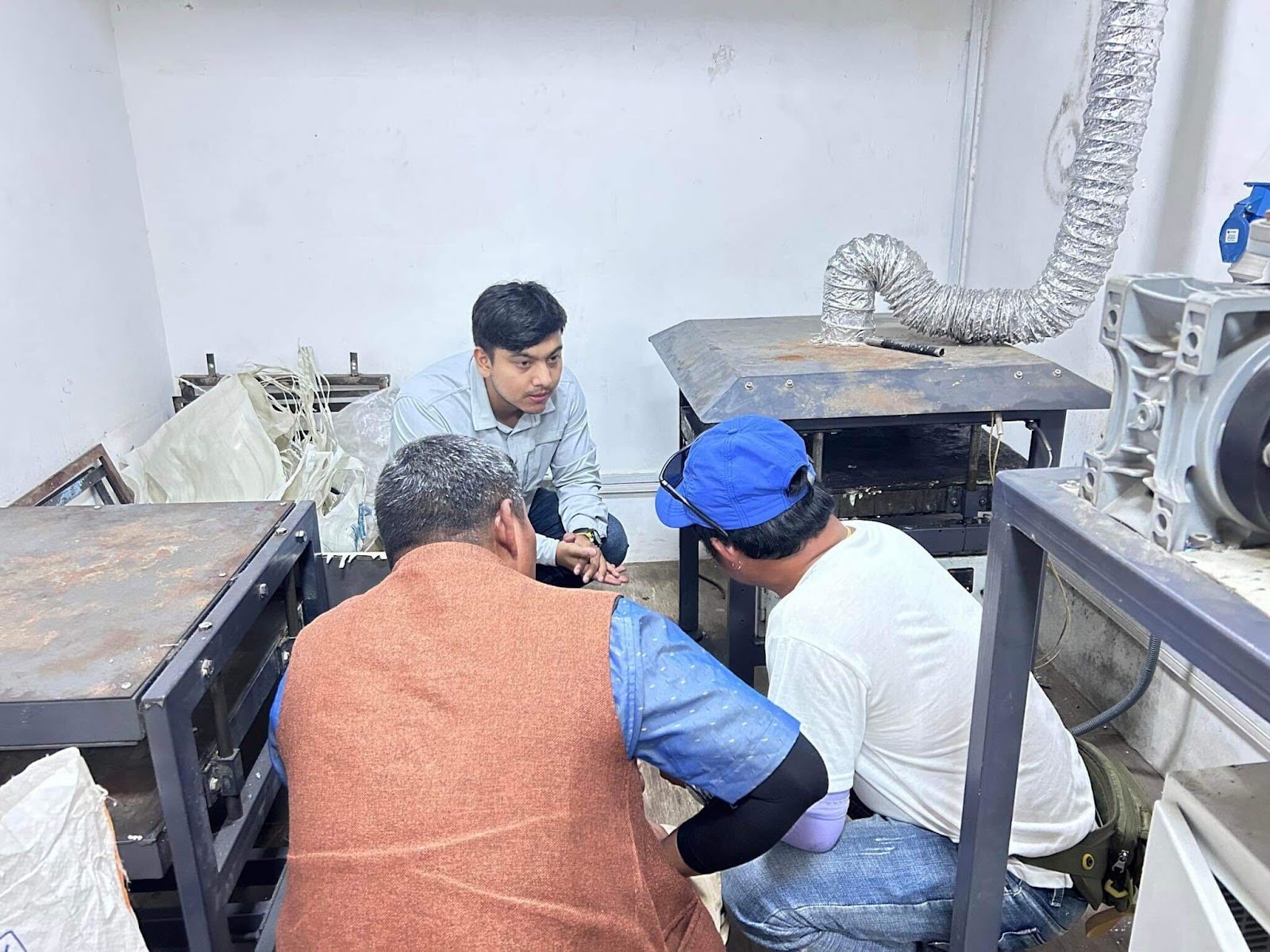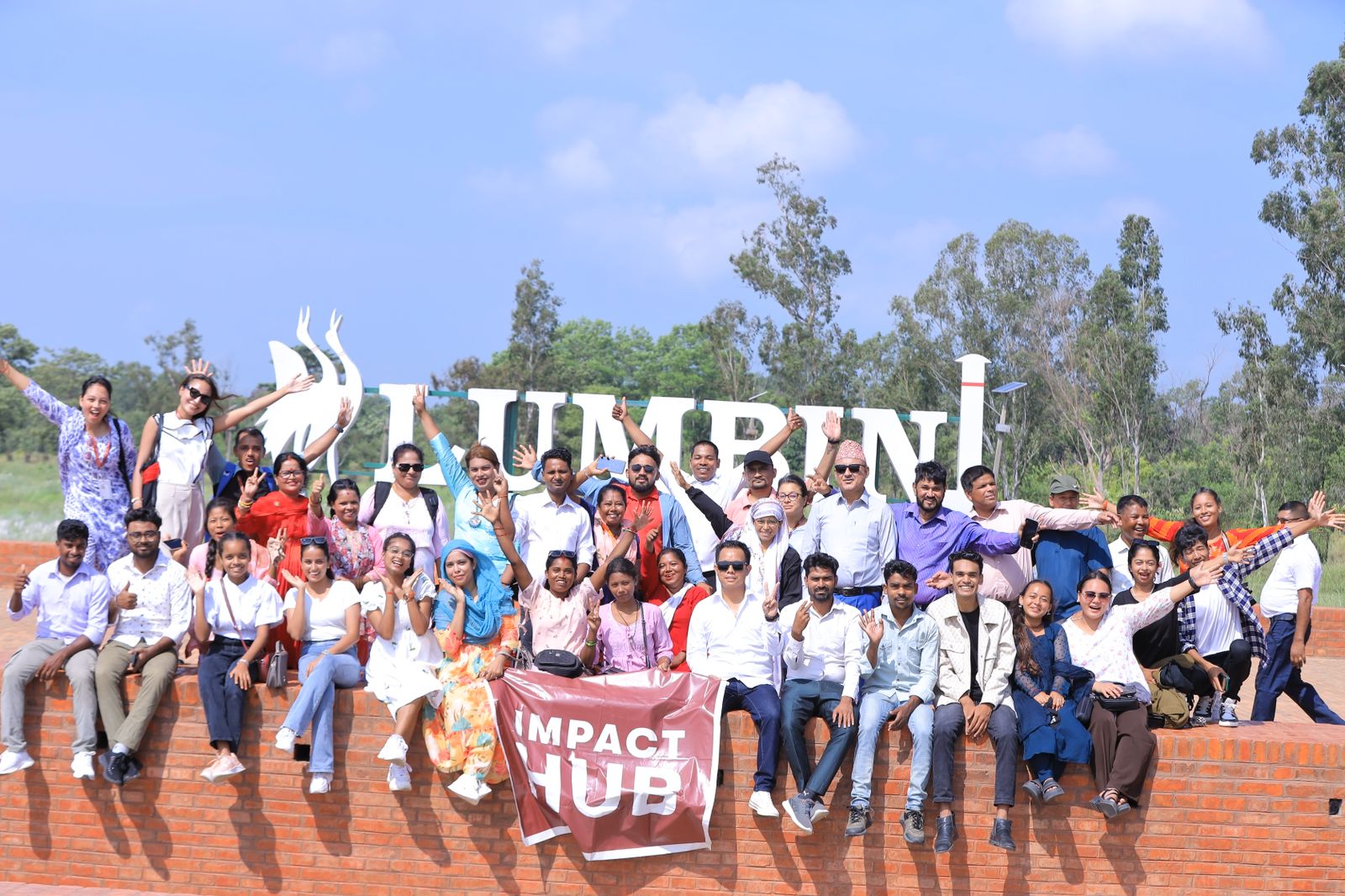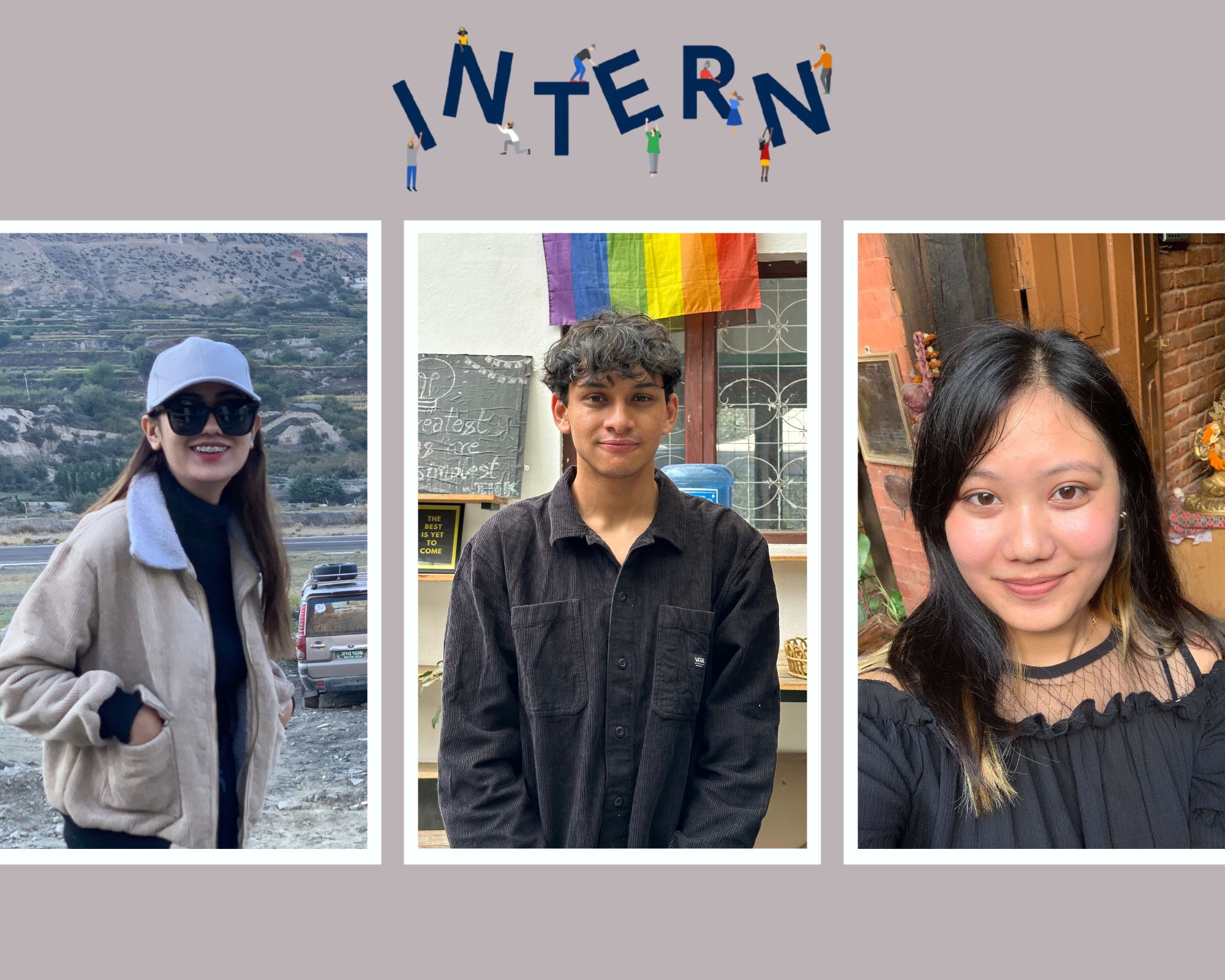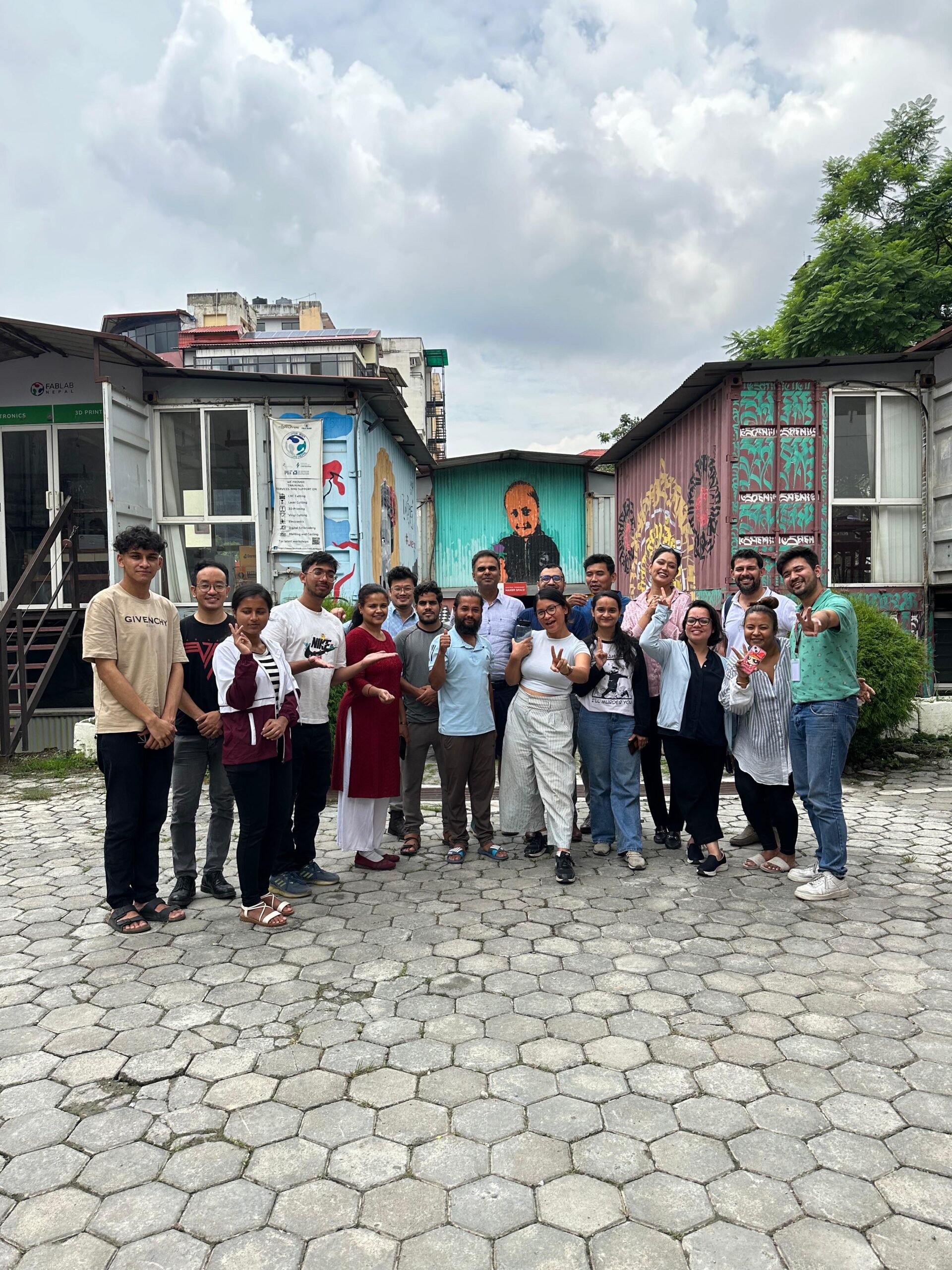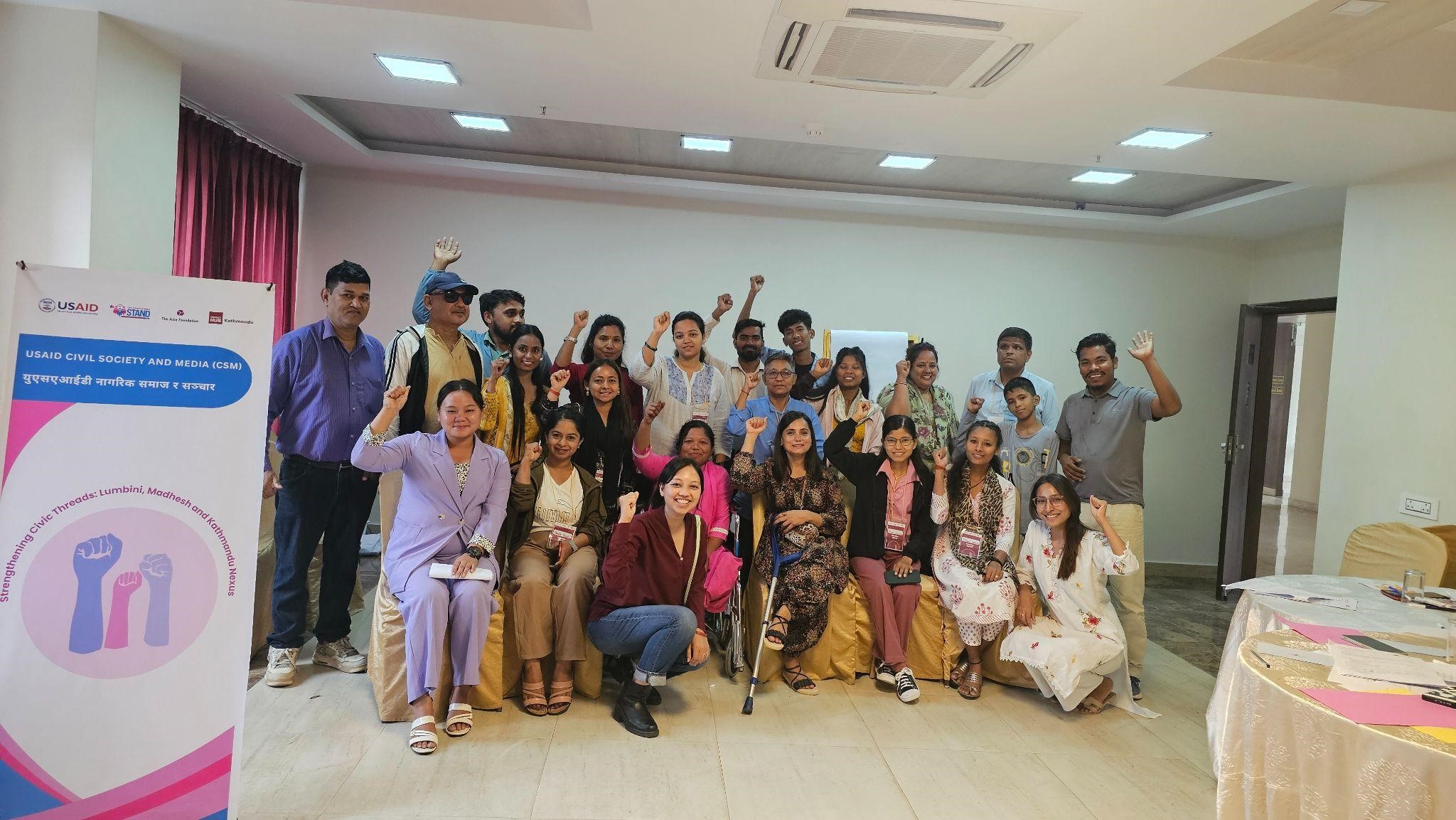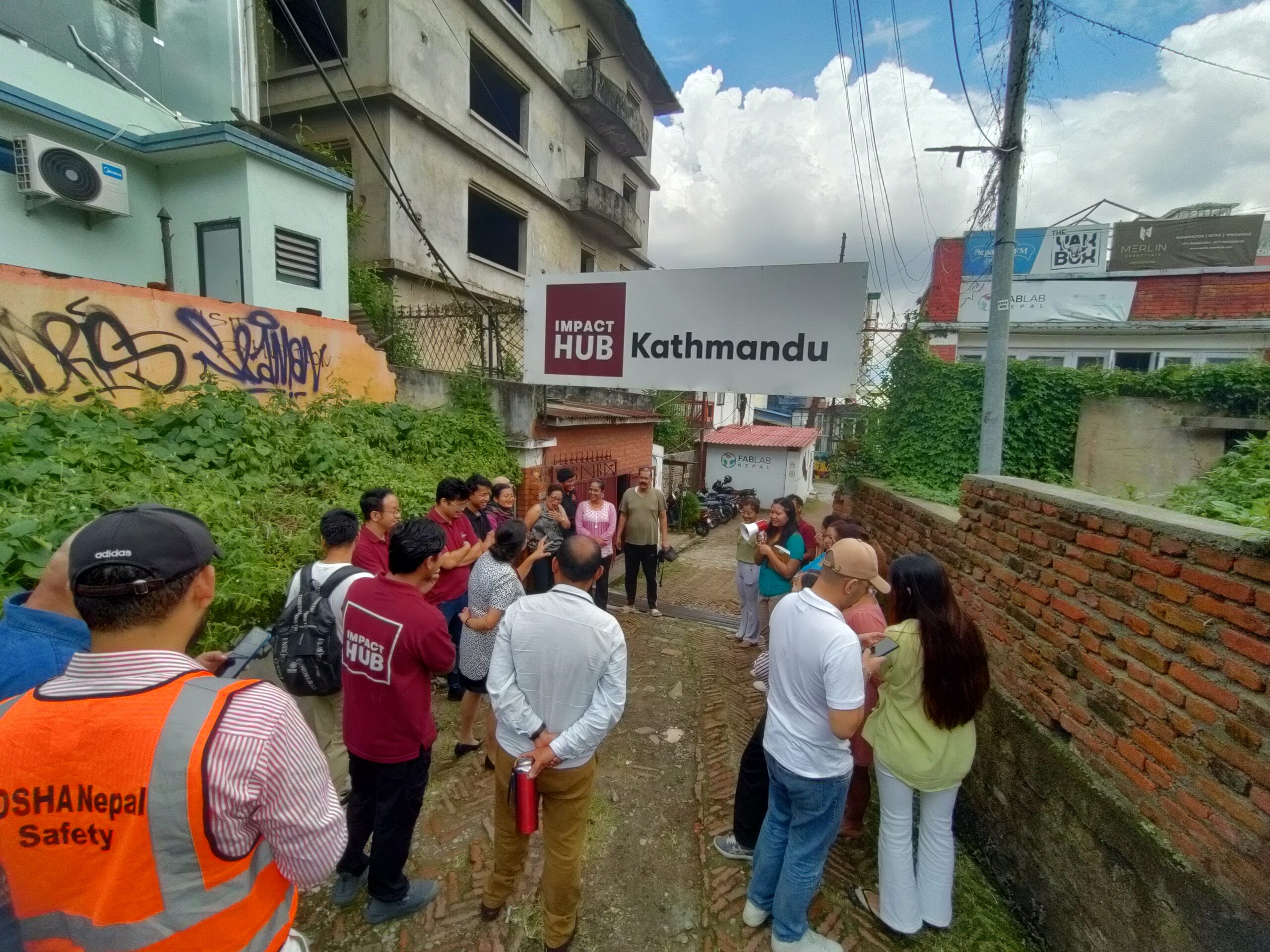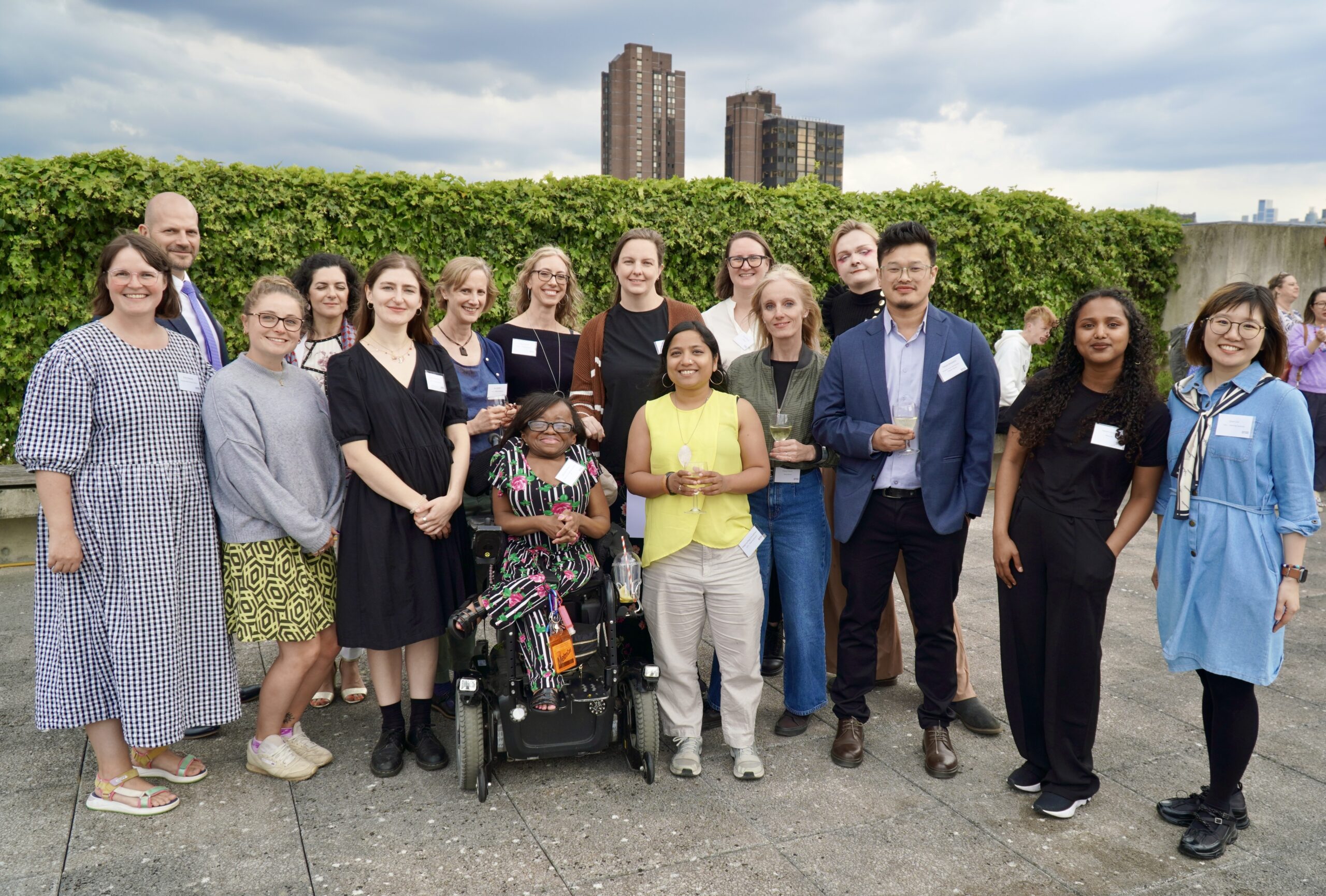By Rohan Shrestha and Nischal Shrestha
Masterclass Overview:
What is circular finance? How does financing for circular solutions work for enterprises? How can circular finance be incorporated through Financial Support to Third Parties (FSTP)? These were the topics covered that we supported our incubatees to tackle in RoC Masterclass 2: Circularity Finance and Pre-Seed Funding. This masterclass was held on 16 May 2024 for our incubatees of (ROC) Incubator Program – Bagmati Cohort 1 2024.
This masterclass was facilitated by our deputy director Ms. Aarati Shrestha with support from the RoC Team Bisheshta Shrestha, Programs & GEDSI Lead, Rohan Shrestha, Programs Officer, and Nischal Shrestha, Programs & Research Intern. The session’s objective was to introduce the concept and benefits of circular finance and give an overview of guidelines for pre-seed funding and its reporting guidelines to the incubatees.
Introduction to Circular Finance:
Circular finance focuses on the financial mechanisms and strategies that support circular economy initiatives through investment in companies and projects that promote circularity. Circular economy and circular finance go hand in hand to lead Together, circular economy and circular finance approach a pathway towards a sustainable and resilient economy. This contributes to the efficient use of resources, waste minimization, and economic growth without sacrificing environmental conservation. The day’s session was based on the fundamentals of this concept.
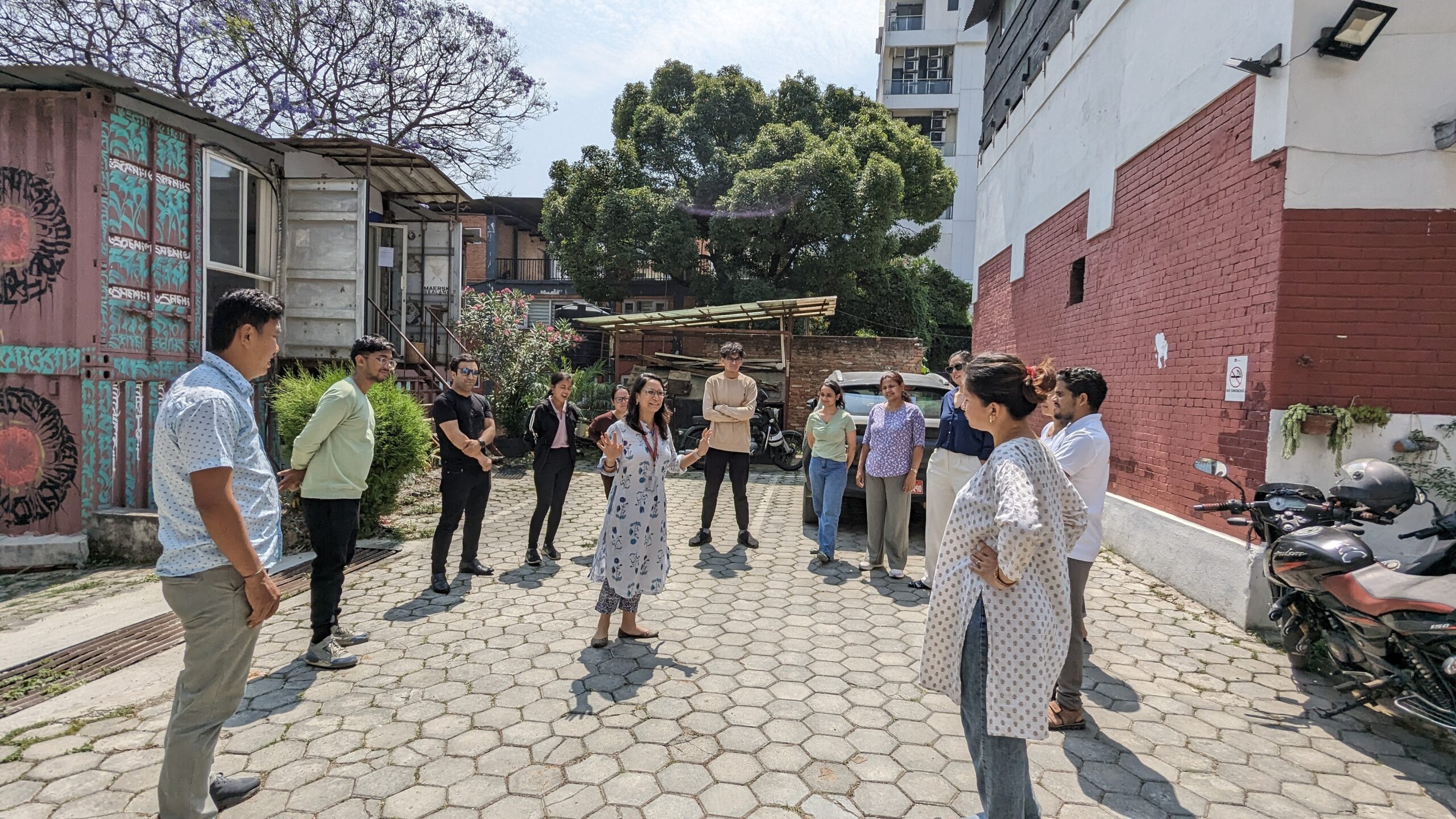
The session began with an icebreaker activity that encouraged participants to engage in discussions about environmental awareness and sustainability. Our participants enthusiastically answered the questions displaying their awareness of environmental sustainability. After this, the incubatees were involved in an activity asking them to share their understanding of “Circular Finance” using meta cards. This interactive session enhanced the participants’ foundational knowledge and set the stage for more in-depth discussions and the day’s upcoming activities.
Discussion on Circular Business Models:
The incubatees – Kapal Fertilizer Agricultural Farm, Eco Sathi Nepal, Kinnovation Trading Pvt. Ltd., Rekriti, CoffeeBhatti, Duluwa Outdoors, Shikar Agro Pvt. Ltd., Khagraj Krishi Udhyog, HattiHatti Nepal, and Naturo Earth, were divided into teams to discuss three questions on financing circular businesses. The questions posed to the participants in the first round of group discussions were: “Why do you think it is difficult to finance a circular business?”, “What do you think are the different circular business models?”, and “What are the circular solutions that you want to adopt or are suitable for circular businesses?” These questions stirred insightful conversations and allowed participants to explore the challenges and opportunities within the circular economy as well as encouraged peer learning.
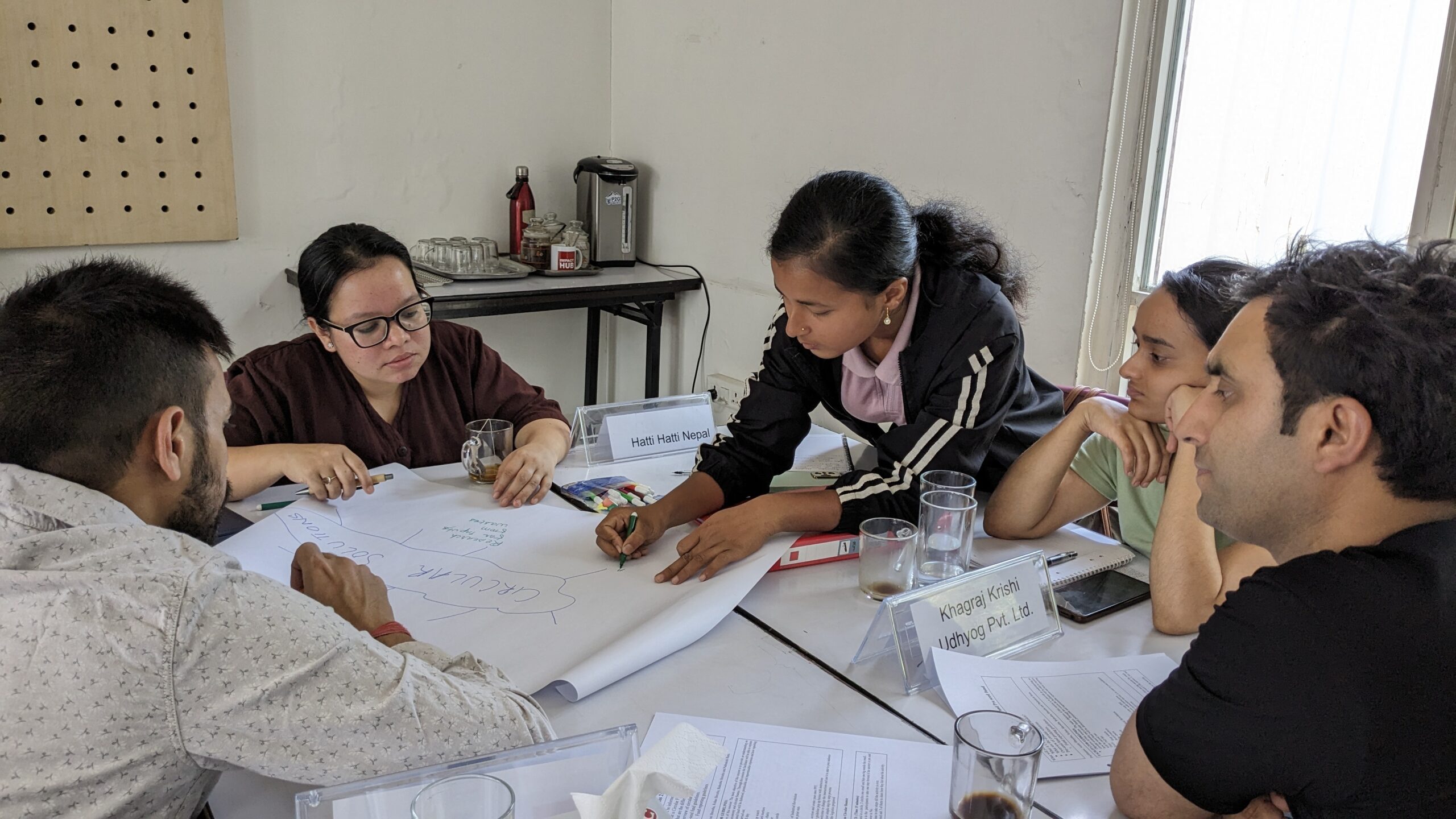
ROC Pre-Seed Funding (Financial Support to Third Parties) Expenditure Guideline:
After a lunch break and a fun energizer game, the session on ROC Pre-Seed Funding guidelines commenced. Ms. Aarati detailed the pre-seed fund guidelines, covering eligible expenses and criteria, activities, and the documentation required for reporting. She also laid out the procedure for claiming the seed funds. This session provided clarity on the financial aspects of the program, which was crucial for the participants. Following this, the teams discussed in their business groups how they would utilize the seed fund to support circularity in their business, with Ms. Aarati guiding them to ensure their plans aligned with the program’s objectives.
Team discussion on ‘Financial Support to Third Parties (FSTP):
The participants also learned about the documentation and reporting required for seed funding, including invoices, agreements, and financial projections. This session on FSTP (Financial Support to Third Parties) Reporting emphasized the importance of transparency and accountability in financial management, equipping participants with the knowledge to manage their funds effectively. Additionally, participants were asked: “What type of circular solutions do you propose?” and “What is the expected amount/funds?” These questions were crucial for defining the objective of pre-seed funding, ensuring that participants had clear plans for utilizing the funds effectively.
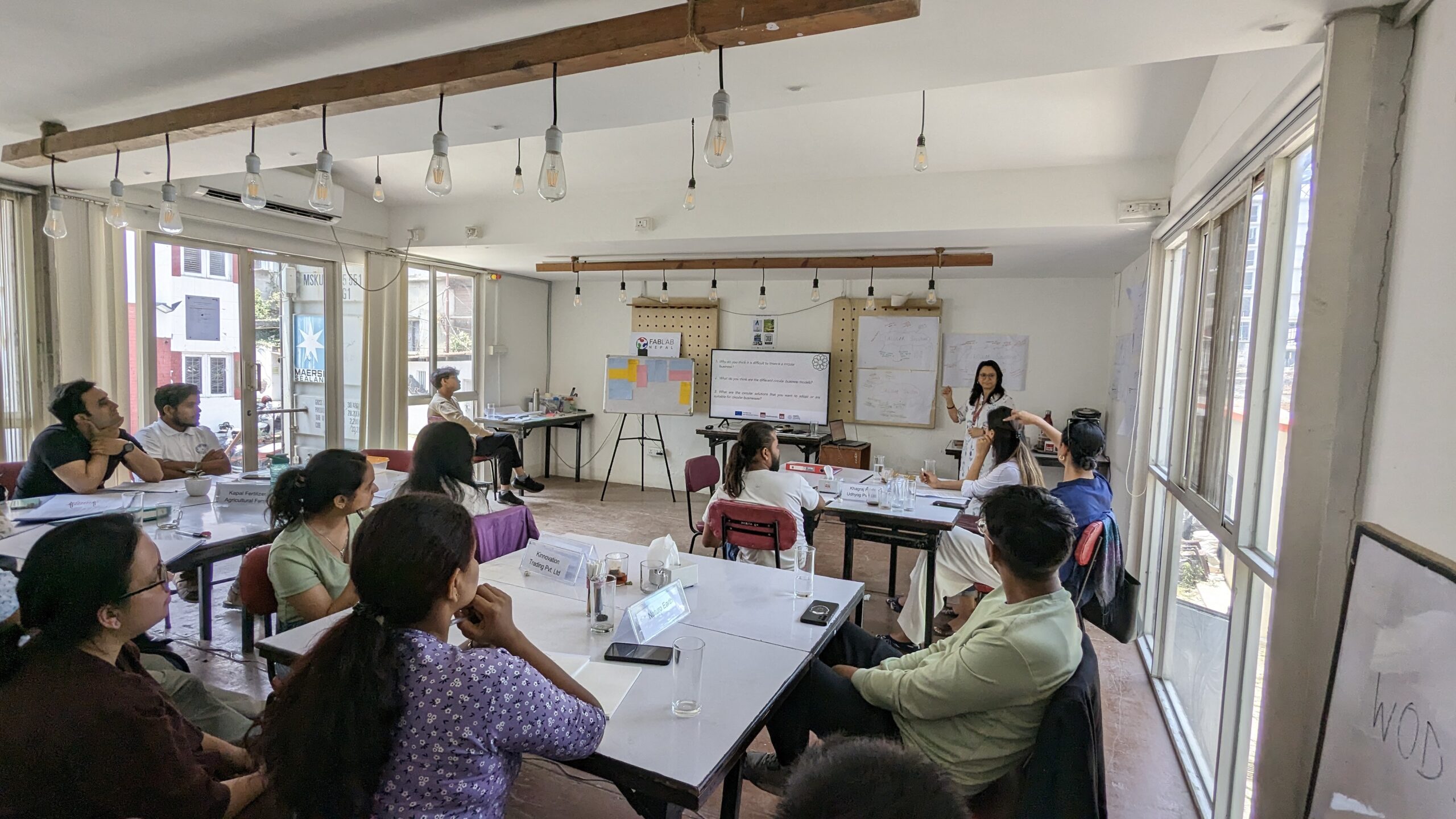
In conclusion, the participants gained a comprehensive understanding of circular finance and the prerequisites for obtaining pre-seed funding. They identified various circular business models and solutions, enhancing their business strategies. As the program ended, participants shared their insights, followed by closing remarks from Ms. Aarati Shrestha, who encouraged them to start working on their documentation and informed them about the upcoming masterclass.
The Roots of Circularity (RoC) project – Introducing and Integrating Circular Economy in Nepal in Nepal is funded by the European Commission and spearheaded by Impact Hub Association (IHA) in collaboration with Impact Hub Kathmandu (IHK) and Wildlife Conservation Nepal (WCN).
Glimpses of Masterclass 2:






